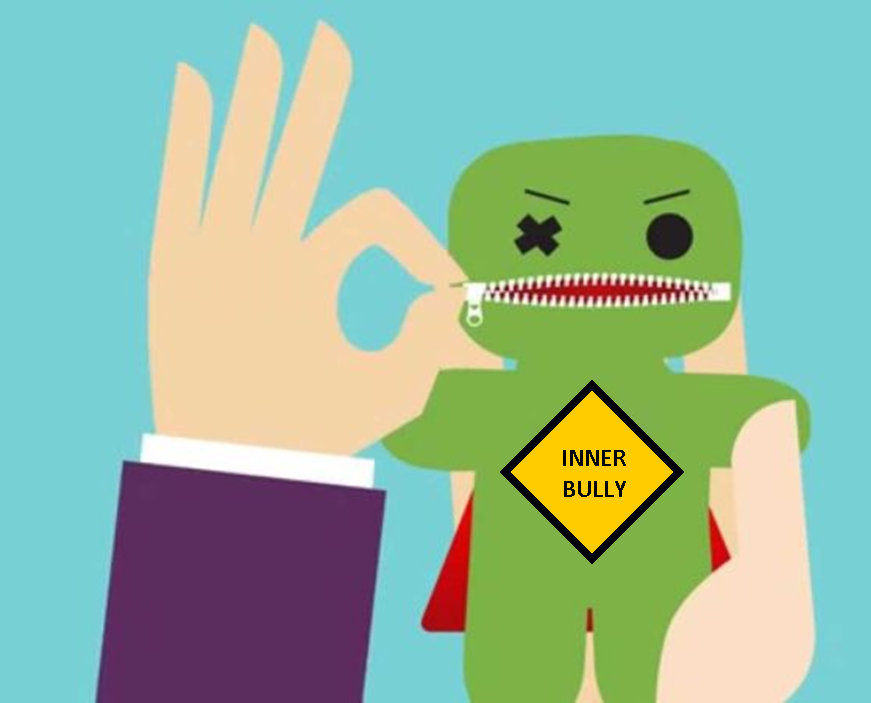Negative self-talk arises from a ruthless internal bully.
“Everything I touch fails. I suck at everything!”
Those words were uttered by 35-year-old Brady who can’t seem to shake a pattern of failed jobs and relationships.
Is it a matter of bad luck? Definitely not. It has to do with how he was programmed.
“In my father’s eyes, I was a loser . . . couldn’t do anything right,” Brady said. He recalls his one goal in life as a boy: “To make my dad proud of me . . . to hear him praise me for a job well done—just once!” But that never happened. “Instead, he kept reminding me of how worthless I was.”
Brady’s no longer a child living at home, but he’s taking over where his father left off. The only difference is that his attacker now hangs out in his head. Call it his inner bully.
Inner bullies don’t just spring out of nowhere. They’re the byproduct of daily exposure to a demeaning or verbally abusive parent.
“Are you really the way your father sees you?” I asked. “Does he really know you?” Brady lowered his head. “I—I couldn’t say that he does.”
I smiled. “Then quit living as if it were true . . . as though he’s right,” I said. “You’re the authority on you, he’s not.”
I offered the same advice to Ellie, another client raised by a toxic parent—her mother.
Among other things, Ellie wants to start her own business, but she’s paralyzed by a constant barrage of self-belittling thoughts.
I remember her asking: “What’s wrong with me? Why is my mother so nasty to me?” I answered her with a question of my own. “What’s wrong with your mother? Why can’t she see your value?” Ellie couldn’t answer that. She just did a lot of crying instead.
Brady and Ellie can’t control how their parents view them, but they can control what they accept as fact and what they tell themselves.
Unfortunately, that can’t happen with a simple snap of the finger. It requires learning a new habit. The old automatic thinking has to go. I recommended the book You are Not Your Brain by Jeffrey Schwartz, M.D. and Rebecca Gladding, M.D. The book shows readers how to rewire their brain and it offers steps for ending deceptive brain messages.
Inner bullies are fairly common. Why? Because there’s no such thing as a perfect parent or a perfect childhood. Like sponges, we absorb any negativity our parents and others dish out. We also absorb the positive, but it takes an abundance of feeling cared for, cherished and valued to override the not-so-good stuff.
We’re not at the mercy of our programming. As children we couldn’t avoid being programmed, but as adults we have the advantage of wisdom. We can out-think our inner bully.
That’s how we silence it. 🙂
Names are changed to honor client confidentiality.
(c) Salee Reese 2019
